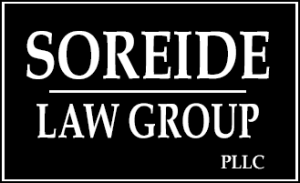Gary Blankenship wrote in his article for The Florida Bar’s, The Florida Bar News, that as part of the required three-year review of the Bar’s voluntary Florida Registered Paralegal program, the Bar is looking into the request by some paralegals that they be licensed and regulated by the Bar or the Supreme Court.
It was announced that The Bar Board of Governors, at its July 23 meeting, approved a recommendation from the Program Evaluation Committee to set up a nine-member committee to examine regulating paralegals.
“That program [FRP] is up for review right now. But the registered paralegals have requested that we look into requiring that they be regulated in some form or fashion, and their request specifically is that they be regulated by The Florida Bar or the Florida Supreme Court,” said board member Greg Coleman, chair of the Program Evaluation Committee, which will review the registered paralegal program.
Coleman noted that several years ago, paralegals went to the Legislature to request mandatory regulation. That measure died when the Bar agreed to study the issue, which led to the registered paralegal program.
“This time they came to us first. We had quite a long discussion,” Coleman said. “We think it is worthwhile exploring and think it’s something that should be discussed and vetted.”
It was announced that the new committee will include three members from the PEC subcommittee, three paralegals, and three others chosen by Bar President Mayanne Downs.
“The [PEC] motion was to have this committee appointed to explore this issue of paralegal regulation and anything else the president wants to throw into the mix,” Coleman said. “There’s a real threshold question on whether the Supreme Court can regulate paralegals, and that will be looked at.”
Notably, the board approved the recommendation by a voice vote.
Mark Workman, president of the Florida Alliance of Paralegal Associations, said regulation would protect the public by helping to crack down on unsupervised paralegals who do unauthorized legal work and also help in “setting educational standards, ethical guidelines and to enhance the public’s perception of who we are and what we can and cannot do.”
Workman also said, “We want to have a valid say in our direction . . . in the direction the paralegal profession goes.”
Workman added that his organization performed a survey of paralegals and the preliminary results showed 95 percent felt the $150, which is paid annually to the Bar by those participating in the Florida Registered Paralegal program, should be spent exclusively on matters to help and advance paralegals.
Ninety percent said paralegal representatives on the Bar’s FRP Committee should be elected by paralegals rather than appointed by the Bar; 87 percent said paralegals should have a voice in their profession, he said. Another 79 percent favor mandatory regulation of paralegals, but only 50 percent thought the Bar’s existing FRP program should be mandatory.
“We do want more control over our profession,” Workman said. “We believe that it is through the Supreme Court that we should be regulated; it needs to stem from the Supreme Court and not directly from The Florida Bar.”
Johnna Phillips, a former president of the Paralegal Association of Florida and a member of the Bar committee that came up with the current FRP program, said mandatory regulation is a logical step and not necessarily a major change from the current program.
It could be as simple as requiring that anyone using or given the title paralegal meet the education and testing requirements of the FRP program. That includes passing one of two nationally recognized paralegal certification exams.
It would also abolish the current grandfather clause, due to expire in another year, of the FRP program, she said.
“We would want something that is very similar to the provisions of the FRP program without the grandfathering,” Phillips said. “Candidates would have to meet the credentials of the FRP program at the time the sunset goes away. There would be a mandatory education requirement for those who call themselves paralegals.”
Paralegals wanted a mandatory scheme when the FRP program was set up, and accepted that as a first step, she said.
“I think mandatory would be the next reasonable step in the process,” Phillips said. “There are a whole host of other categories inside the legal team; legal secretaries and legal assistants are certainly part of the legal team. Our time is being billed out and clients should have some sense of assurance when they’re seeing time billed for a paralegal; it is truly someone who is a paralegal.”
This article appeared on The Florida Bar’s website.
The Soreide Law Group, PLLC, represents those seeking admittance to the Florida Bar, and existing lawyers, for both investigative hearings and formal hearings in front of the Florida Bar. For more information about our services please visit: www.floridabarhearing.com or call (888) 760-6552.

